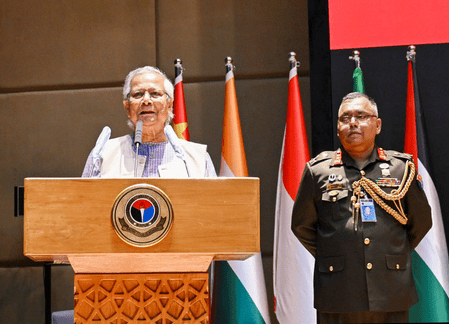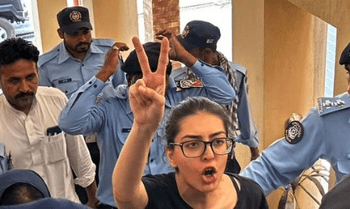Dhaka, Nov 25 — Bangladesh is slipping into a severe and multidimensional economic crisis marked by rising external debt, stagnating investment, and stalled development activity, the Awami League warned on Tuesday. The party accused the Muhammad Yunus-led interim government of fostering administrative inefficiency and enabling corruption that is undermining the country’s economic stability.
The Awami League stated that despite the appearance of recent economic progress, the underlying reality is far more alarming. “While the debt burden grows, the engines of future growth—investment and job creation—have stalled,” the party said. It added that political uncertainty, banking sector irregularities, a persistent dollar shortage, and bureaucratic hurdles have brought new investment to a “virtual standstill.”
Factories across Bangladesh are reportedly struggling to import raw materials and secure financing, leading to reductions in production. The labour market, instead of generating new jobs, is witnessing increasing layoffs, contributing to a slowdown in economic growth.
Entrepreneurs, according to the party, now consider corruption a greater obstacle than policy uncertainty. The entrenched “duties-bribes-approvals” cycle has become a major barrier to business operations and expansion.
Highlighting the worsening economic environment, the Awami League noted that development spending has sharply declined under the interim administration. “The implementation of the Annual Development Programme (ADP) has fallen below 68 per cent — the lowest in a decade,” the party said, attributing this to administrative delays, weak management, and pervasive “commission culture.”
The party further warned that stalled development risks turning national debt into a long-term liability. Cost overruns, delays, and irregularities in mega-projects such as the Rooppur Nuclear Power Plant, the Metro Rail, and the Karnaphuli Tunnel have accelerated external borrowing. Citing assessments by the Asian Development Bank, the Awami League pointed out that Bangladesh now has the fastest-growing external debt in South Asia.
With major repayment schedules due from FY 2026–27 onward, the party cautioned that the pressure on national finances will intensify, noting that the IMF already classifies Bangladesh’s external debt as “moderately risky.”


















